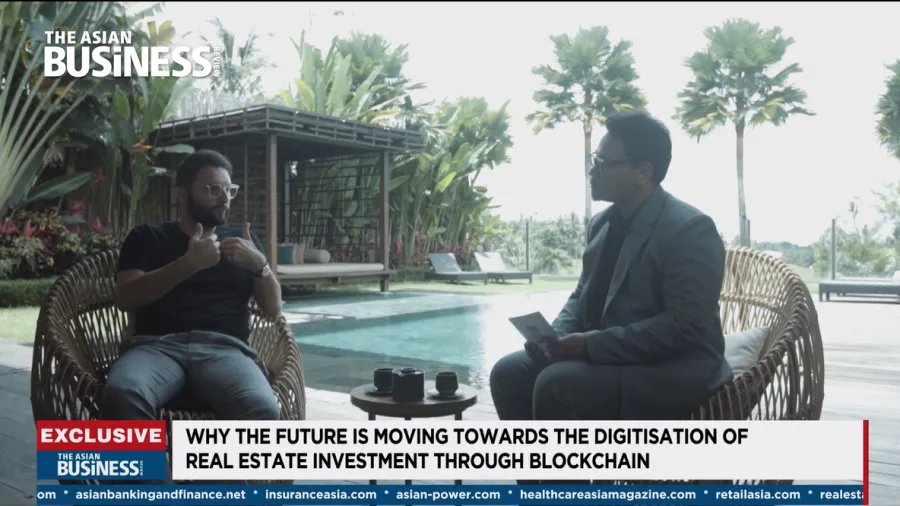
Why the future is moving towards the digitisation of real estate investment through blockchain
Kibarer Property Group offers faster, simpler and scalable solution to property investment.
The past decade has seen the financial sector evolve with technologies that make investing, buying, and paying faster and more convenient. Among the newer technologies that gained great popularity in the past two years are non-fungible tokens (NFT). Activity around this type of investment, however, revolved around purchasing digital art
NFTs are still little understood beyond their relationship with content creation, but unique sectors or organisations have shown interest in how this form of currency and its underlying technology, called blockchain – a network of computers that host, maintain, and create new blocks of data that are chained together with cryptography – can be applied. One such sector is real estate.
The increasingly louder buzz around NFT caught the eye of Alban Kibarer, Founder of Kibarer Property Group, a premier real estate company that develops and deals in luxury villas in Bali, Indonesia.
“I saw so many crypto people doing a lot of trading and when I saw this NFT space growing, I tried to understand what it was, and how we can apply them to property. We had no idea of exactly how crypto or NFT was working, but we knew something was going on.”
In the end, Kibarer chose to deal in Ekta NFT due to the simplicity and speed of transaction it offers. In association with K club, the company is set to launch a new way to buy or sell property in the real world of Bali.
According to its advocates, NFTs can be used to buy virtual and physical real estate that is registered on a blockchain network, to create a record of all historical ownerships and transactions of the property.
For its part, Ekta claims to make real estate investment “easy, fast, and secure to buyers and sellers,” and enables earning dividends, APY yields, rental income, property value appreciation, and other rewards. Kibarer’s website predicts that the launch of their new products will jack up the value of Ekta, adding that investing in Ekta NFTs equal to the price of their luxury villa in Bali – priced anywhere from US$96,000 to US$5 million – could get the investor a 1% monthly return. The website further claims that K Club villa already increased by 28% within a month with the growth of Ekta.
Challenges and solutions to real estate NFTs
In an interview, Kibarer explained that dealing in NFTs has conveniences, depending on how the blockchain technology is automated.
“The day you resell the property, you don't need to sell the ownership, you can just sell the NFT. So it's much faster,” as a result of the digitally interconnected blocks of data related to the property. While traditional transactions can take weeks or months with its paperwork and regulations, NFTs claim nearly instantaneous processes. “Basically you can make a transaction in less than two minutes. It is very safe. And you can also double your profits,” Kibarer said.
Immobile ownership then addresses the main challenge of dealing in real estate NFTs as a type of currency: government regulation.
“What we are doing is so new, that actually there is no regulation. What we are trying to do is create a sophisticated product which is safe for the user and also legal,” said Kibarer.
“We try to find the best legal aspects to attach the real property to the digital world. As soon as you move with ownership, this is where there is a lot of regulation. If you don't change any ownership, there is no issue at all.”
As most technologies face concerns around security, so do blockchains. Kibarer explains that NFT transactions operate on two levels. Once a property is registered in the blockchain, this generates a digital contract. Any transaction that involves the property requires the approval of the contract/NFT holder.
The second layer involves an e-wallet. Horror stories circulate about anonymous multimillion-dollar investors losing the passwords to their e-wallets. “It's the same. As soon as you have this villa on your wallet: if you lose your wallet, you lose the villa.”
However, Kibarer’s team has come up with a solution. “When you buy a villa with us, when you buy the NFT, we can also record your name. So if you lose your wallet, we can always find a way. We can always retrieve because we know who you are.”
Another benefit of real estate NFTs for someone who aspires to buy a Kibarer villa in Bali, is fractional ownership, something akin to a share. For example, “a lot of people would like to buy a villa but not everybody has US$100,000. But a lot of people can have US$5000 or US$10,000, or US$50,000. What we can do is fractionalize it and buy part of it. You get exactly the same benefit but just pay a portion.”
In this case, the smart deed or contract can be automated within the blockchain to show that several investors have joint ownership of a property.
Educating the market
Similar to the introduction of the internet, embracing technology takes time, especially if it involves assets. But Kibarer is optimistic that society will eventually accept it.
“We try to educate them to tell them by saying ‘look, you have another option to buy or invest, which is much better and much more profitable. You can still go to the traditional markets, but you can also make more money and it's faster in this way.”
“This is your future because 99% of the people in the world are not in this space. This is what we want to do – target 99% of the people who are not in this space yet.”











 Advertise
Advertise










